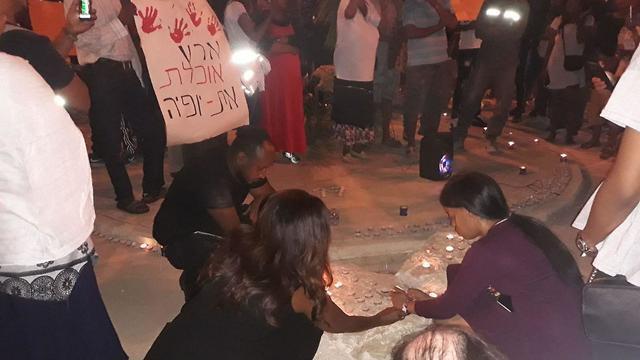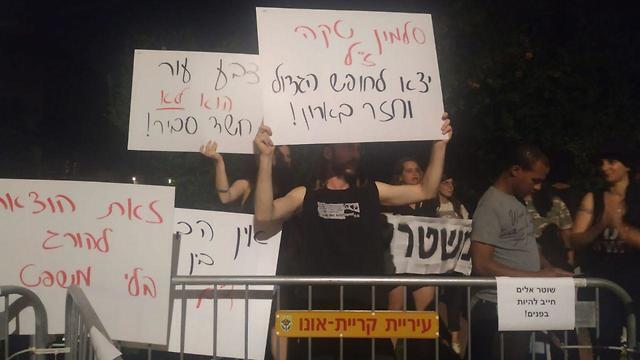Getting your Trinity Audio player ready...
We haven't even marked six months since the death of Yehuda Biadga ,and once again a young person of Ethiopian origin has been shot to death by the police.
and Twitter
We can already guess what is going to happen now: the outrage of the Ethiopian community will abate, the police's investigation will end without them taking responsibility, the victim himself will be blamed, and in a few months, we will be shocked by a similar case.
Welcome to the tragic and interminable cycle of violence against the Ethiopian community.
The police and its agents use demagoguery to delegitimize the struggle of an entire community. The public discussion is deliberating the degree to which the officer was threatened as well as the hypothetical justifications for his actions.
His actions, let's not forget, ended with him drawing and cocking his gun, and then firing at a group of young people in the middle of a residential neighborhood.
They use terms like "disturbances," "riots," and "obstructing traffic" to describe the protest and the justified sense of injury of the victims of police violence. All of this reinforces in the Ethiopian community a strong sense of injustice: we stand alone in this struggle.
4 View gallery


Lighting memorial candles for Solomon Tekah at a protest in Be'er Sheva over his death
(צילום: איילה בילוך)
The absurd part is that the Ethiopian community is battling social problems that affect many other groups in this country. Police violence isn't a phenomenon that is reserved only for Israelis of Ethiopian origin – and the discrimination, aggression, and authoritarianism, which meets indifference from many passers-by, will end up at everyone's back door.
The Ethiopian community stands at the frontline of this battle, but what will happen when your first line of defense collapses?
Research shows that since 2014, the number of police files that have been opened for Israelis of Ethiopian origin have grown more than 20% with the respect to the rest of the population.
This research is based on police statistics, and includes all the years since 2015—the very year that thousands took to the streets of Tel Aviv and protested police violence .
Today, young Israelis of Ethiopian origin are reluctant to trust large institutions. The Ministry of Justice? That's the place where plea deals are arranged for police officers who are found completely innocent.
The police isn't capable of admitting its own failings when dealing with racial profiling and excessive violence. The uniformed agents of such a powerful body walk around in the public sphere with the basic assumption that they can do no wrong.
Hence, what possible meaning could there be to dialogue with such a powerful group? It doesn't matter what the data say, they are always right and even receive support.
We must make the Israeli Police, its policies and its actions, the center of the conversation. First and foremost, it must recognize the problems found in its organization.
Second, the police need to stop applying Band-Aid solutions like "conversations with community representatives." It's time for real action.
The way to gain the trust of Israelis of Ethiopian origin is by taking an uncompromising stance and prosecuting violent officers. The second and third generation of Israelis of Ethiopian origin demand equal treatment before the law, physical security, and dignity.
These demands will not be met by cultural sensitivity workshops and police officers of Ethiopian origin.
Third, the solution involves a change in attitude in dealing with all citizens, and in the purpose of the police and its place in society.
We cannot be part of a society where the answer to every problem includes use of force, authoritarianism, and threats. There must be other ways to protect citizens.
Keeping order is supposed to mean protecting us, but today it seems to be an expression that justifies the use of any means.
The police are too concerned with defending themselves, and instead of defending us they injure citizens and even kill them.
Mazal Bisawer is an activist and an MA student in the study of the Middle East and North Africa




